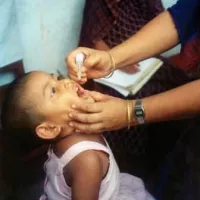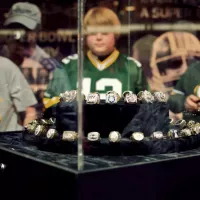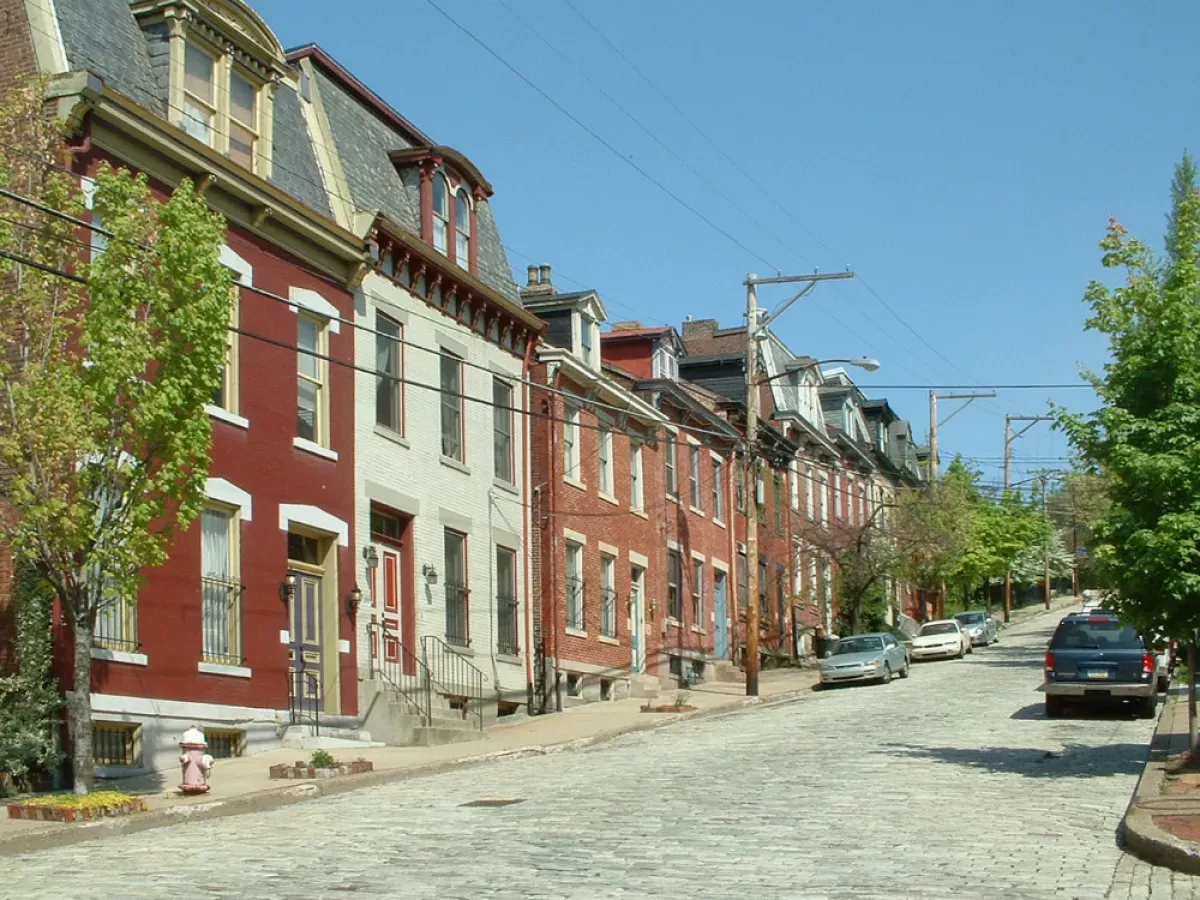Pittsburgh is a city in southwestern Pennsylvania, situated at the confluence of the Allegheny and Monongahela Rivers, which form the Ohio River. As of the 2020 census, it had a population of approximately 302,971, making it the second-most populous city in Pennsylvania. The Pittsburgh metropolitan area, with over 2.43 million residents, is the largest in the Ohio Valley and Appalachia, the second-largest in Pennsylvania, and ranks as the 28th-largest in the United States. The wider combined statistical area extends into parts of Ohio and West Virginia.
July 1, 1901: Record warm daily minimum in Pittsburgh
On July 1, 1901, Pittsburgh recorded a record warm daily minimum temperature of 82 °F (28 °C).
1901: J. P. Morgan and Elbert H. Gary merge steel companies into U.S. Steel.
In 1901, J. P. Morgan and attorney Elbert H. Gary merged Carnegie Steel Company and several other companies into U.S. Steel.
1901: Pittsburgh Pirates Claim Pre-World Series Title
In 1901, the Pittsburgh Pirates baseball team claimed a pre-World Series title.
1902: Pittsburgh Pirates Claim Pre-World Series Title
In 1902, the Pittsburgh Pirates baseball team claimed a pre-World Series title.
1903: Pittsburgh Pirates in First World Series
In 1903, the Pittsburgh Pirates baseball team was in the first World Series.
1907: Annexation of Allegheny City
In 1907, the independent Allegheny City was annexed by Pittsburgh and became the North Side.
1910: Pittsburgh becomes the nation's eighth-largest city
By 1910, Pittsburgh had become the nation's eighth-largest city, and the city accounted for between one-third and one-half of national steel output.
1911: Magee Womens Hospital Founded
In 1911, Magee Womens Hospital was founded in Pittsburgh.
1911: Federal decision to drop the 'h' in Pittsburg reversed.
In 1911, the federal government reversed its decision to drop the 'h' from the end of Pittsburgh's name, though the Pittsburg Press continued spelling the city without an h until 1921.
1912: Duquesne Light Founded
In 1912, Duquesne Light, one of the original power companies, was founded by George Westinghouse.
1912: Duquesne University Red Masquers Founded
The Duquesne University Red Masquers, founded in 1912, are the oldest, continuously producing theater company in Pennsylvania.
1914: Pitt Women Begin Play
In 1914, the University of Pittsburgh women's basketball team began play.
October 1915: Cleveland Agreement
The Cleveland Agreement of October 1915 was replaced by the Pittsburgh Agreement completed on 31 May 1918.
May 1918: Pittsburgh Agreement completed
In May 1918, The Pittsburgh Agreement was completed between members of Czech and Slovak expatriate communities in the U.S. The agreement concerned the future foundation of Czechoslovakia as envisioned by T. G. Masaryk.
1918: Lowest seasonal snowfall recorded
During the 1918-19 season, Pittsburgh recorded its lowest seasonal snowfall at 8.8 inches (22 cm).
1918: Nabisco Factory Built
The Nabisco factory, which was later refurbished and used by Google for research and technology offices, was initially built in 1918.
November 2, 1920: KDKA Begins Airing
On November 2, 1920, KDKA 1020 AM, the world's first commercially licensed radio station, began airing in Pittsburgh.
1921: The Pittsburg Press restores the 'h' to its spelling of Pittsburgh
In 1921, The Pittsburg Press changed its spelling of Pittsburgh to include the 'h'.
1924: NHL Franchise Awarded
In 1924, the NHL awarded one of its first franchises to Pittsburgh, recognizing the Pittsburgh Yellow Jackets' recent USAHA championships.
1927: Establishment of Pittsburgh Steeling Company
In 1927, the Pittsburgh Steeling company, which inspired the name of the Pittsburgh Steelers, was established.
1928: Pitt's National Championship
In 1928, the University of Pittsburgh (Pitt) won a pre-NCAA tournament National Championship.
1930: Lowest annual precipitation recorded
In 1930, Pittsburgh recorded its lowest annual precipitation at 22.65 inches (575 mm).
1930: Pitt's National Championship
In 1930, the University of Pittsburgh (Pitt) won another pre-NCAA tournament National Championship.
1933: Founding of the Pittsburgh Steelers
In 1933, the Pittsburgh Steelers were founded and have been owned by the Rooney family since then.
1933: Democrats Elected Consecutively to Mayor's Office
Starting with the 1933 election, Democrats have been elected consecutively to the mayor's office in Pittsburgh.
March 1936: Severe flooding in Pittsburgh
In March 1936, Pittsburgh suffered severe flooding.
1936: Pittsburgh Hornets Farm Team
In 1936, the Pittsburgh Hornets farm team was established, surviving until 1967.
1937: PGA Championship at Laurel Valley Golf Club
In 1937, Laurel Valley Golf Club hosted the PGA Championship.
1937: Pittsburgh Pirates in the NBL
In 1937, the Pittsburgh Pirates played in the National Basketball League (NBL) until 1945.
1940: Non-Hispanic whites make up 90.6% of Pittsburgh's population
By 1940, non-Hispanic whites made up 90.6% of Pittsburgh's population, as the city's population swelled with European immigrants and African-Americans from the Great Migration.
1940: Duquesne Reaches NCAA Final Four
In 1940, Duquesne University reached the NCAA tournament Final Four.
1941: Pitt Reaches NCAA Final Four
In 1941, the University of Pittsburgh (Pitt) reached the NCAA tournament Final Four.
1947: Pittsburgh Ironmen in the NBA
In 1947, the Pittsburgh Ironmen participated in the inaugural season (1947-48) of the National Basketball Association (NBA).
1950: Start of highest seasonal snowfall recorded
During the 1950-51 season, Pittsburgh recorded its highest seasonal snowfall at 80 inches (200 cm).
1950: City population in 1950
In 1950, Pittsburgh's population reached 680,000.
April 1, 1954: WQED 13 Established
On April 1, 1954, WQED 13 was established as the first community-sponsored television station and the fifth public station in the United States.
1954: Allegheny General Administers Cobalt Therapy
In 1954, Allegheny General Hospital (AGH) was among the first to administer Cobalt therapy.
1955: Duquesne Wins NIT Title
In 1955, Duquesne University won the National Invitation Tournament (NIT) title.
1956: End of indoor skating at the Exposition Building and Duquesne Gardens
In 1956, indoor skating ceased at the Exposition Building on the Allegheny River and Duquesne Gardens in Oakland, which had been offering indoor skating since 1896.
1957: LPGA Championship
In 1957, the LPGA Championship was held at a suburban course in Pittsburgh.
1959: Treatment plant constructed
Pittsburgh's wastewater treatment plant was constructed in 1959.
1961: Pittsburgh Rens
From 1961 to 1963, Pittsburgh had a basketball team named the Pittsburgh Rens.
1961: Point Park University Founded
Point Park University was founded in 1961 and is well known for its Conservatory of Performing Arts and its Pittsburgh Playhouse.
1965: PGA Championship at Fox Chapel Golf Club
In 1965, Fox Chapel Golf Club hosted the PGA Championship.
1966: Mary Lou Williams Honors Hometown with Album
In 1966, pianist-composer Mary Lou Williams honored her hometown with an album featuring Leon Thomas.
1967: End of Pittsburgh Hornets farm team
In 1967, the Pittsburgh Hornets farm team, which had been active since 1936, ceased operations.
1967: Penguins Founding
In 1967, the Pittsburgh Penguins of the NHL were founded and began playing in Pittsburgh.
1968: Night of the Living Dead Film Release
In 1968, George A. Romero's film Night of the Living Dead was released, and Pittsburgh is recognized as the birthplace of the modern zombie film genre.
1968: Pittsburgh's ABA Franchise Won Title
In 1968, Pittsburgh's ABA franchise won the title, but the Steel City Yellow Jackets franchise is heir to it only in location.
1968: Pittsburgh Pipers Win ABA Championship
In 1968, the Pittsburgh Pipers, led by Connie Hawkins, won the first American Basketball Association (ABA) championship before the team relocated.
1970: Pittsburgh Condors in the ABA
From 1970 to 1972, the Pittsburgh Condors were part of the American Basketball Association (ABA).
1970: Non-Hispanic whites 78.7% of the population
In 1970, Non-Hispanic whites were 78.7% of the population, compared to 64.8% in 2010.
1970: Pitt Women Reintroduced
In 1970, the University of Pittsburgh women's basketball program was reintroduced.
1971: Pirates Field All-Minority Lineup
In 1971, the Pittsburgh Pirates were the first Major League team to field an all-minority lineup.
1972: Steelers Sell Out Every Home Game
Since 1972, the Pittsburgh Steelers have sold out every home game.
1973: Election with Lifelong Democrats Running Off Party Ticket
In the 1973 election, lifelong Democrats ran off the party ticket.
1977: Launch of "Renaissance II" project
In 1977, Pittsburgh launched the "Renaissance II" project, which focused on cultural and neighborhood development.
1977: Election with Lifelong Democrats Running Off Party Ticket
In the 1977 election, lifelong Democrats ran off the party ticket.
1984: INPEX Convention Hosted in Pittsburgh
Since 1984, Pittsburgh has hosted INPEX, the world's largest invention trade show.
July 16, 1988: Record high temperature in Pittsburgh
On July 16, 1988, Pittsburgh reached a record high temperature of 103 °F (39 °C).
1990: Fifth-largest Ukrainian community
According to the 1990 census, Pittsburgh had the fifth-largest Ukrainian community.
1990: Pirates National League Championship Series Appearance
In 1990, the Pittsburgh Pirates had a National League Championship Series appearance, going 6 games.
1991: Eastern Conference and Stanley Cup Championships
In 1991, the Pittsburgh Penguins won the Eastern Conference title and the Stanley Cup championship.
1992: Eastern Conference and Stanley Cup Championships
In 1992, the Pittsburgh Penguins won the Eastern Conference title and the Stanley Cup championship.
1993: Start of Consecutive Losing Seasons
1993 marked the start of the MLB record for most consecutive losing seasons for the Pittsburgh Pirates, which lasted until 2012.
January 19, 1994: Record low temperature in Pittsburgh
On January 19, 1994, Pittsburgh recorded its all-time record low temperature of -22 °F (-30 °C).
July 15, 1995: Last seen reading above 100 °F (38 °C) in Pittsburgh
On July 15, 1995, Pittsburgh last saw readings above 100 °F (38 °C).
1995: Pittsburgh Piranhas in CBA Finals
In 1995, the Pittsburgh Piranhas reached the Continental Basketball Association (CBA) Finals.
1997: Pirates featured last no-hitter and last award for Sporting News' Executive of the Year.
In 1997, the Pittsburgh Pirates September pennant race featured the franchise's last no-hitter and last award for Sporting News' Executive of the Year.
1998: Riverhounds Founded
In 1998, the Riverhounds, an American professional soccer team, were founded.
1998: Nabisco Factory Refurbished
The Nabisco factory which was built in 1918, was refurbished in 1998 and subsequently used by Google for research and technology offices.
1999: Mario Lemieux Becomes Owner
In 1999, Hall of Famer Mario Lemieux became the owner of the Pittsburgh Penguins.
2000: Population decrease
Between 2000 and 2010, Pittsburgh's population decreased by 8.6% to 305,704.
2000: Pittsburgh Teacher Salaries Ranked 17th
In 2000, Pittsburgh Public Schools teachers' minimum salary was ranked 17th among the 100 largest cities by population.
2000: Keystone State Wrestling Alliance Founded
In 2000, the Keystone State Wrestling Alliance (KSWA), a professional wrestling promotion, was founded in Pittsburgh.
2002: Pittsburgh Passion Established
Since 2002, the Pittsburgh Passion has been the city's professional women's football team.
2003: Tekko Anime Convention Hosted in Pittsburgh
Since 2003, Pittsburgh has hosted Tekko, a four-day anime convention.
2004: Pittsburgh Xplosion
From 2004 to 2008, the Pittsburgh Xplosion played basketball.
2004: Hurricane Ivan Remnants Cause Record Rainfall
In 2004, the remnants of Hurricane Ivan caused record rainfall and occasional flooding in extremely low-lying areas near rivers and creeks in Pittsburgh.
2005: Pittsburgh had 31,000 trees along streets
As of 2005, Pittsburgh had 31,000 trees along 900 miles of streets.
2005: Bassmaster Classic Fishing Competition
In 2005, Pittsburgh hosted the Bassmaster Classic, a world-title fishing competition.
2005: Senior PGA Championship
In 2005, the Senior PGA Championship was held at a suburban course in Pittsburgh.
2006: Rise in housing property values begins
Between 2006 and 2011, Pittsburgh experienced over 10% appreciation in housing prices, which was the highest appreciation of the largest 25 metropolitan statistical areas in the United States.
2006: Luke Ravenstahl Becomes Mayor
In 2006, Luke Ravenstahl was sworn in as mayor at age 26, becoming the youngest mayor in the history of any major American city.
2006: Pennsylvania Film Production Tax Credit Passage
In 2006, the passage of the Pennsylvania Film Production Tax Credit accelerated Pittsburgh's film industry.
2006: Anthrocon Held Annually in Pittsburgh
Since 2006, Anthrocon, one of the world's largest furry conventions, has been held annually at the David L. Lawrence Convention Center in Pittsburgh.
2006: Anthrocon Convention Hosted in Pittsburgh
Since 2006, Pittsburgh has hosted Anthrocon, a furry convention.
2007: Technology Industry Payroll Exceeds $10.8 Billion
In 2007, the annual payroll of Pittsburgh's technology industries exceeded $10.8 billion in aggregate.
2007: Establishment of Tax Credit Incentive
In 2007, the establishment of a 25% tax credit incentive significantly impacted film production in Pittsburgh, contributing to the region's economy and job creation.
2008: Eastern Conference Championship
In 2008, the Pittsburgh Penguins won the Eastern Conference title.
September 2009: 2009 G20 Pittsburgh summit held
In September 2009, Pittsburgh hosted the 2009 G20 Pittsburgh summit.
2009: Pittsburgh Phantoms
From 2009 to 2010, the Pittsburgh Phantoms played basketball.
2009: Pittsburgh hosts the 2009 G20 summit
In 2009, Pittsburgh hosted the G20 summit, a meeting of world leaders to discuss financial and economic issues.
2009: Forrest Wood Cup Fishing Competition
In 2009, Pittsburgh's rivers attracted the annual world-title Forrest Wood Cup fishing competition.
2009: Demolition of East Mall public housing complex
In 2009, the East Mall public housing complex was demolished and replaced by businesses like Target. This is seen by some residents as evidence of a strategy to disperse Black and low-income populations and facilitate gentrification.
2009: Eastern Conference and Stanley Cup Championships
In 2009, the Pittsburgh Penguins won the Eastern Conference title and the Stanley Cup championship.
2009: Steelers Win League Record Sixth Super Bowl
In 2009, the Pittsburgh Steelers won a league record sixth Super Bowl.
2009: DUG East Energy Trade Show Hosted in Pittsburgh
Since 2009, Pittsburgh has hosted the DUG East energy trade show.
2010: Association of Religion Data Archives (ARDA) Study
According to a 2010 Association of Religion Data Archives (ARDA) study, the Pittsburgh metro area included 773,341 Catholics, 326,125 Mainline Protestants, 174,119 Evangelical Protestants, 20,976 Black Protestants, and 16,405 Orthodox Christians, with 996,826 listed as unclaimed and 16,405 as other.
2010: 1,600 Technology Companies in Pittsburgh
In 2010, Pittsburgh was home to 1,600 technology companies.
2010: Terrance Hayes Wins National Book Award
In 2010, poet Terrance Hayes won the National Book Award.
2010: Move to PPG Paints Arena
In 2010, the Pittsburgh Penguins moved into the PPG Paints Arena, formerly known as Consol Energy Center, after playing at the Civic Arena since 1967.
2010: Household data from 2010 census
In 2010, there were 143,739 households in Pittsburgh, with an average household size of 2.17 and an average family size of 2.95.
2010: Population and demographics in 2010
The 2010 census recorded Pittsburgh's population at 305,704, a decrease of 8.6% since 2000. The racial makeup was 66.0% White, 25.8% Black or African American, 0.2% American Indian and Alaska Native, 4.4% Asian, 0.3% Other, and 2.3% mixed.
2011: Annual benefits of city's urban forest
A 2011 analysis valued the annual benefits of Pittsburgh's urban forest between $10 and $13 million.
2011: Rise in housing property values ends
Between 2006 and 2011, Pittsburgh experienced over 10% appreciation in housing prices, which was the highest appreciation of the largest 25 metropolitan statistical areas in the United States.
2011: Pittsburgh Becomes "Gotham City"
In 2011, Pittsburgh became "Gotham City" during the filming of "The Dark Knight Rises".
2011: Wiz Khalifa's "Black and Yellow" Reaches Number One
In 2011, Wiz Khalifa's hit song "Black and Yellow" reached number one on the Billboard Hot 100.
2011: Pittsburgh Dad Series Showcases Pittsburghese
Since 2011, the Pittsburgh Dad series has showcased the Pittsburghese genre to a global YouTube audience.
2012: Pitt Panthers Leave Big East for the ACC
Between the 2012 and 2013 seasons, the University of Pittsburgh Panthers left the Big East for the ACC.
2012: Senior Players Championship
From 2012 to 2014, suburban courses such as Laurel Valley Golf Club hosted Senior Players Championships.
2012: Crime Statistics per 100,000 Persons
In 2012, statistics were compiled per 100,000 persons in Pittsburgh regarding crime rates.
2012: Hot Mass Electronic Music Party
Since 2012, the Hot Mass after-hours electronic music dance party has been a key part of Pittsburgh's electronic music scene, noted for its European nightclub vibe.
2012: End of Consecutive Losing Seasons
The Pittsburgh Pirates' MLB record for most consecutive losing seasons ended in 2012, after a 20-year stretch.
2013: Pitt Panthers Leave Big East for the ACC
Between the 2012 and 2013 seasons, the University of Pittsburgh Panthers left the Big East for the ACC.
2013: Pittsburgh Named 3rd "Most Secure" Big City
In 2013, Pittsburgh was named the 3rd "most secure" big city by Farmers Insurance.
2013: Pirates National League Division Series Appearance
In 2013, the Pittsburgh Pirates had a National League Division Series appearance.
January 6, 2014: Bill Peduto Sworn In as Mayor
On January 6, 2014, Bill Peduto was sworn in as the mayor of Pittsburgh.
2014: Pittsburgh Ranked Second-Best City for Intergenerational Economic Mobility
A 2014 National Bureau of Economic Research report named Pittsburgh the second-best U.S. city for intergenerational economic mobility or the American Dream.
2014: Pittsburgh's air quality impacts health
A 2014 to 2016 study found that children near pollution sources had asthma rates nearly three times the national average.
2014: Pew Research Center Study on Religion
According to a 2014 study by the Pew Research Center, 78% of Pittsburgh's population identified as Christians, with 42% as Protestant and 32% as Catholic. 18% claimed no religious affiliation, and other religions made up about 4% of the population.
2014: Terrance Hayes Becomes MacArthur Foundation Fellow
In 2014, poet Terrance Hayes, winner of the 2010 National Book Award, became a MacArthur Foundation Fellow.
2014: Pirates Wild Card Game Appearance
In 2014, the Pittsburgh Pirates had a Wild Card game appearance.
2015: Chatham University Becomes Coeducational
In 2015, Chatham University, a liberal arts college, became fully coeducational after being founded as a woman's college.
2015: Pirates Wild Card Game Appearance
In 2015, the Pittsburgh Pirates had a Wild Card game appearance.
2016: Pittsburgh's air quality impacts health
A 2014 to 2016 study found that children near pollution sources had asthma rates nearly three times the national average.
2016: Eastern Conference and Stanley Cup Championships
In 2016, the Pittsburgh Penguins won the Eastern Conference title and the Stanley Cup championship.
2016: High lead levels in drinking water
In 2016, the Pittsburgh Water and Sewer Authority (PWSA) faced criticism for high lead levels in the city's drinking water.
2017: Cohen Center for Modern Jewish Studies at Brandeis University Study
A 2017 study by the Cohen Center for Modern Jewish Studies at Brandeis University estimated the Jewish population of Greater Pittsburgh was 49,200.
2017: Major Film and Television Productions
From 2017 to 2023, Pittsburgh welcomed a series of major film and television productions like "Fences", "Mindhunter", "Ma Rainey's Black Bottom", "Sweet Girl", and "I'm Your Woman", contributing to the local economy.
2017: ALCOSAN proposed a system upgrade
In 2017, The Allegheny County Sanitary Authority (ALCOSAN) proposed a $2 billion system upgrade.
2017: Eastern Conference and Stanley Cup Championships
In 2017, the Pittsburgh Penguins won the Eastern Conference title and the Stanley Cup championship.
2018: Population density in 2018
As of 2018, Pittsburgh had a population density of 5,513 people per square mile.
2018: Highest annual precipitation recorded
In 2018, Pittsburgh recorded its highest annual precipitation at 57.83 inches (1,469 mm).
2018: Pitt Panthers Appear in ACC Championship Game
In 2018, the University of Pittsburgh Panthers appeared in the ACC Championship Game.
2018: Starting and Maximum Teacher Salaries
In 2018, the starting teacher salary in Pittsburgh Public Schools for teachers with a BA was $46,920, and the maximum salary for a teacher with a master's degree was $95,254.
2019: 37 Murders Reported
At the end of 2019, the Pittsburgh Bureau of Police reported 37 murders in the city.
2019: Household income in 2019
By the 2019 American Community Survey, the median income for a household in Pittsburgh increased to $53,799.
2019: EPA approves ALCOSAN's system upgrade
In 2019, The EPA approved a $2 billion system upgrade proposed by the Allegheny County Sanitary Authority (ALCOSAN).
2019: Pittsburgh Named Top American Food City
In 2019, the San Francisco marketing agency AF and Co named Pittsburgh the top American food city.
2020: Population and demographics in 2020
By the 2020 census, the population of Pittsburgh slightly declined further to 302,971. The racial and ethnic makeup in 2020 was 64.7% non-Hispanic white, 23.0% Black or African American, 5.8% Asian, and 3.2% Hispanic or Latino American of any race.
2020: Pittsburgh population at 2020 census
In 2020, the census recorded Pittsburgh's population at 302,971, making it the second-most populous city in Pennsylvania.
November 2021: Ed Gainey Elected as Mayor
In November 2021, Ed Gainey was elected as the first African-American mayor of Pittsburgh.
2021: EPA data on air quality in Pittsburgh
According to the United States Environmental Protection Agency (EPA) data from 2021 to 2024, Pittsburgh's air quality was generally good or moderate.
2021: Pitt Panthers Win ACC Championship Game
In 2021, the University of Pittsburgh Panthers won the ACC Championship Game, their first conference title since leaving the Big East for the ACC.
2023: Major Film and Television Productions
From 2017 to 2023, Pittsburgh welcomed a series of major film and television productions like "Fences", "Mindhunter", "Ma Rainey's Black Bottom", "Sweet Girl", and "I'm Your Woman", contributing to the local economy.
2023: Police Scorecard Rating
In 2023, a study by Police Scorecard rated the Pittsburgh Police Department at 37% quality, with ratings below the 50th percentile in various categories.
2023: Police Budget Increase Approved
In 2023, members of the Pittsburgh City Council approved a $6 million increase to the police budget, with about 6% allocated to the Stop the Violence trust fund.
2023: Summer Lee Represents Pennsylvania's 12th Congressional District
Since 2023, Summer Lee, a Democrat, has represented Pittsburgh as part of Pennsylvania's 12th congressional district.
2024: EPA data on air quality in Pittsburgh
According to the United States Environmental Protection Agency (EPA) data from 2021 to 2024, Pittsburgh's air quality was generally good or moderate.
2024: Anthrocon Attracts Over 17,000 Visitors
In 2024, Anthrocon attracted over 17,000 visitors and has generated a cumulative economic impact of $53 million over 11 years.
Mentioned in this timeline

Basketball is a team sport played on a rectangular court...

The Billboard Hot is the primary music chart in the...

Polio vaccines are used to prevent poliomyelitis There are two...

The Super Bowl is the annual championship game of the...

San Francisco is a major commercial financial and cultural hub...
Pennsylvania is a U S state located in the Mid-Atlantic...
Trending

13 minutes ago Megan Thee Stallion Finds Love, Feels Comfortable with Klay Thompson, NBA Star

13 minutes ago Dolphins near decision on Tua Tagovailoa's future; Johnson's thoughts relevant.

13 minutes ago Dwight Howard Praises Victor Wembanyama, Compares Him to Kareem Abdul-Jabbar's Dominance.

1 hour ago Chelsea Gray Defeats Paige Bueckers in Unrivaled Tournament; Bueckers Reacts to Loss

1 hour ago Jalen Brunson Praises Knicks Fan Favorite After Trade Deadline Acquisitions

1 hour ago Shapovalov Advances to Dallas Open Semifinals, Shelton Match Predicted.
Popular

Kid Rock born Robert James Ritchie is an American musician...

Pam Bondi is an American attorney lobbyist and politician currently...
Randall Adam Fine is an American politician a Republican who...
The Winter Olympic Games a major international multi-sport event held...

Barack Obama the th U S President - was the...

XXXTentacion born Jahseh Dwayne Ricardo Onfroy was a controversial yet...
